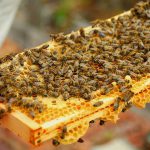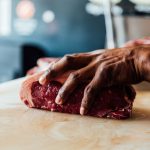
Agribook spoke to Francois Baird about food security, job creation and the role of the poultry sector in South Africa’s development.
Tell our readers about the FairPlay Movement. Did you start it, and why?
I founded FairPlay in 2016 when I visited Hammarsdale outside Durban and saw the devastating impact in the community of Rainbow closing down part of their operation there. Since chicken is the most popular meat for all in SA, I couldn’t understand why this happened.
When I started digging into the matter, I discovered that the SA poultry sector is amongst the most competitive in the world, but was being undermined by dumping. I also learned that small poultry farmers, most of whom are black and those workers at the lowest rung of the employment ladder lose their livelihoods and jobs as a result of dumping.
Most poultry is farmed in rural areas, where unemployment is even higher than the nearly 40% average unemployment in SA. So I went to friends in corporate SA and asked their help, they provided seed money and I founded FairPlay as a non-profit movement. We have now celebrated six years of fighting against predatory trade practices such as dumping, and fighting for the jobs and livelihoods of the workers and communities impacted by dumping. We are not done yet, but we have seen progress.
What was your role in the Poultry Master Plan?
While FairPlay had advocated for a master plan to get all poultry industry stakeholders together to address the threat posed by significant volumes of dumped chicken imports, we are not involved in the development of the plan. We have been a strong supporter of the master plan since it was signed in 2019, while criticising what we see as mistakes or delays.
The poultry importers recently described the master plan as a failure. How do you see progress this far on the Plan?
The master plan has had some notable successes, such as investment in expansion and job creation, but important areas are way behind schedule, such as the export drive. The master plan is certainly not a failure – as the SA Poultry Association (SAPA) has pointed out, the plan has resulted in the investment of more than R1.5 billion to increase production by 10% and created 1 365 jobs so far. A further R900 million will be invested by the end of 2023.
Less successful has been the export drive, planned to double and redouble exports over the next few years. One of the causes of the delay is the lack of state veterinary resources to provide the health certificates that export destinations require. Issues are being addressed – the industry says it will be “export ready” by the end of this year – but a potential export bonanza has yet to be realised. The Association of Meat Exporters and Importers (AMIE) seem uncommitted to South Africa’s poultry industry and its master plan, because as far as we can tell they have made no positive contribution or committed money to the execution of the master plan or the growth of South African poultry.
Minister Patel’s decision to delay for a year the imposition of anti-dumping duties against chicken imports from Brazil and four EU countries was a great disappointment. It has called into question his commitment to “act decisively” against dumping, as the master plan requires. Perhaps most grievously, he has destroyed trust. Who can take him at his word now?
What have been the outcomes of the recent webinar, the “Digital Summit”? What were you hoping for?
The aim of the Digital Summit was to identify master plan successes and problems, and then to highlight the actions needed to get the master plan back on track. In this we succeeded, but unfortunately without the participation of three master plan signatories – Ministers Patel (Trade and Industry) and Didiza (Agriculture) as well as Paul Matthew from the Association of Meat Importers and Exporters (AMIE).
They were all invited. We had hoped to hear their views on the master plan and its future, and in particular what they are doing to address deficiencies and speed up implementation.
Following the Digital Summit, FairPlay has drawn up a list of the actions needed. We have sent this to the two ministers, to chicken importers and to others such as provincial premiers, who are relevant because the poultry industry makes an important contribution to economic growth and job creation in every province. We are now talking to our allies in the trade union movement about other actions to take, since the government is not listening or communicating at all.
On the poultry issues, where do you think our focus should be, as consumers and as a country?
The most important thing is to scrap VAT on certain chicken pieces and on chicken feed. This will immediately benefit consumers, particularly poor consumers and will enable small poultry farmers to better compete. Scrapping VAT on certain chicken pieces would help us all to buy more local chicken and support local jobs. Imports should supplement local production where necessary, not push thousands of South Africans out of work, particularly not through predatory trade, as happened in other African markets. Ghana used to produce 95% of its own chicken. Then it signed a European Partnership Agreement that dictated unfettered chicken imports, with the result that chicken dumping destroyed the indigenous poultry sector – it was reduced to producing only 5% of chicken consumption in Ghana – and eventually pushed prices through the roof. According to a 2017 USAID study, chicken in Ghana cost more than steak in South Africa. Dumping is destructive.
Secondly, master plan implementation is urgent, and particularly the export drive which would be a significant boost to job creation.
As part of this, we must “act decisively” against dumped imports, and that means implementing those anti-dumping duties against Brazil and others now, not in August next year. The local industry is efficient and competitive, but it cannot compete against dumped products.
Thirdly, we should not relax because chicken imports have dropped in recent years. This has mainly been due to the impact of the Covid pandemic, and then widespread bird flu outbreaks in the northern hemisphere. These are temporary factors. Dumping is continuing, it can increase, and it must be stopped. World trade rules are there to ensure fair trade and fair competition within the rules to which South Africa has agreed, and that is what FairPlay stands for.
Finally, the catastrophic collapse of water, electricity and transport infrastructure must be urgently addressed to enable agriculture and business to survive. National economic and food security is on a knife edge.
Feature photo by Zoe Schaeffer on Unsplash
Relevant Agribook pages include “Poultry and chicken farming“.








